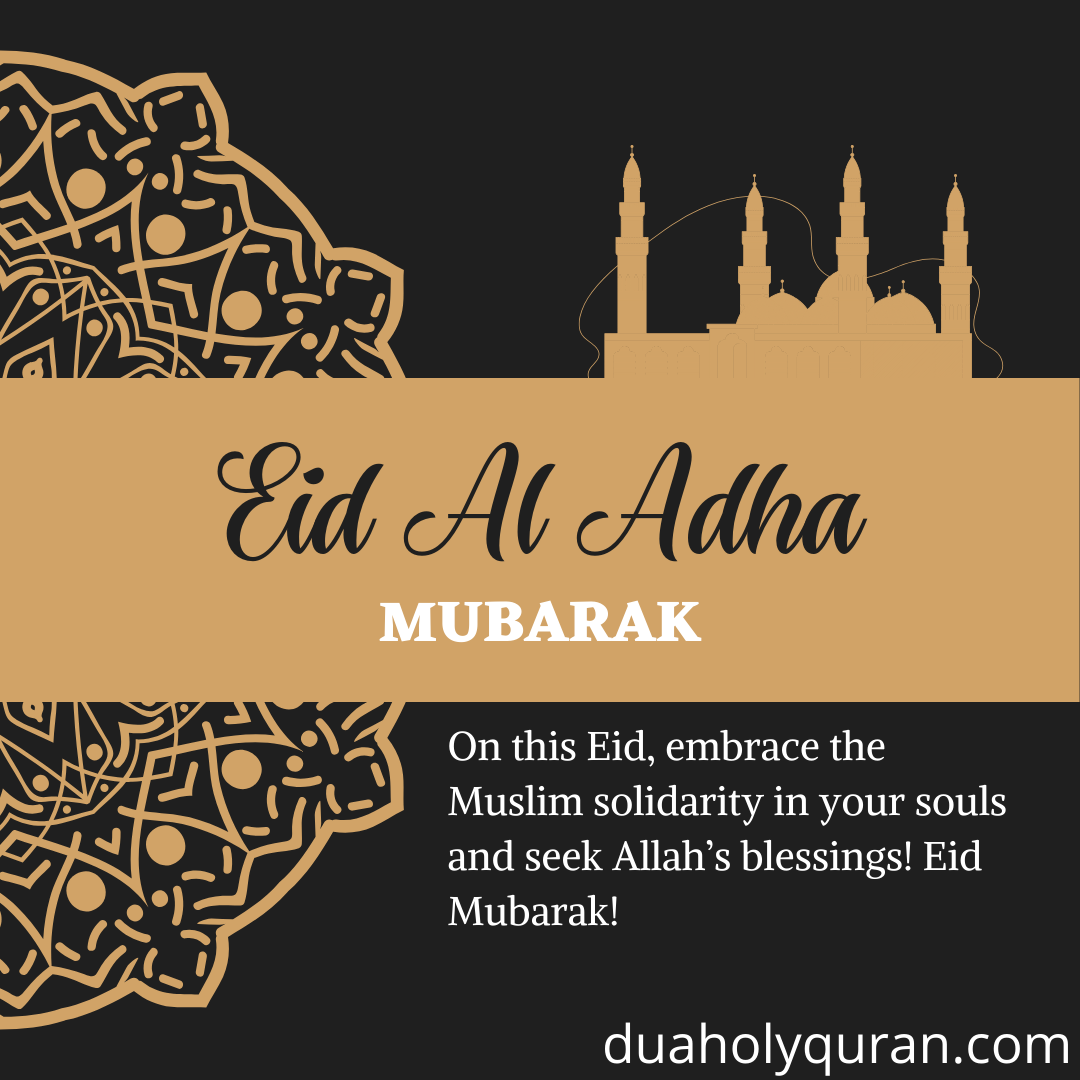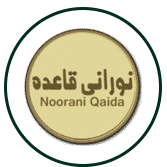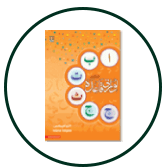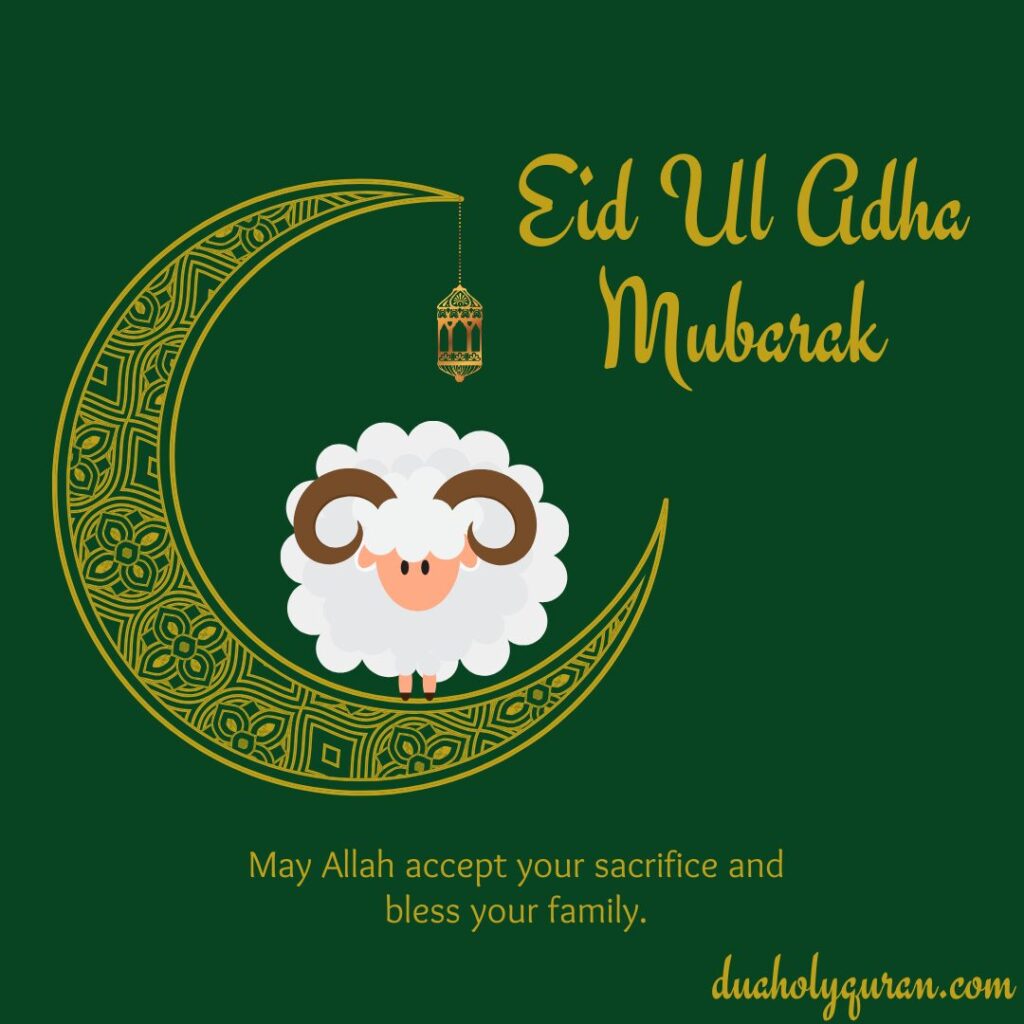Celebrating Eid-ul-Adha: A Joyous Occasion in Islam
Eid-ul-Adha, also known as the Festival of Sacrifice, is one of the most significant festivals celebrated by Muslims worldwide. This auspicious occasion holds deep religious and cultural significance, commemorating the willingness of Prophet Ibrahim (Abraham) to sacrifice his son as an act of obedience to God. In this article, we delve into the essence of Eid-ul-Adha, its traditions, and the spiritual significance it holds for Muslims around the globe.
The Significance of Eid-ul-Adha:
Eid-ul-Adha holds a special place in Islam, marking the end of the Hajj pilgrimage to Mecca and commemorating the willingness of Prophet Ibrahim to sacrifice his son, Isma’il, as an act of obedience to Allah’s command. This profound demonstration of faith and submission is celebrated by Muslims worldwide, emphasizing the values of sacrifice, charity, and compassion.

The Rituals of Eid-ul-Adha:
The day of Eid-ul-Adha begins with the performance of the Eid prayer, which is offered in congregation at mosques or open prayer grounds. Muslims gather in large numbers, dressed in their finest attire, to offer prayers and seek blessings from Allah. Following the prayer, Muslims partake in the symbolic act of animal sacrifice, known as Qurbani, which is performed to commemorate Prophet Ibrahim’s willingness to sacrifice his son.
The Qurbani Ritual:
Qurbani involves the sacrifice of an animal, typically a sheep, goat, cow, or camel, as an offering to Allah. The meat from the sacrificed animal is divided into three parts – one-third for the family, one-third for relatives and friends, and one-third for the less fortunate and needy. This act of sharing reflects the spirit of generosity and compassion that lies at the heart of Eid-ul-Adha.
Feasting and Celebration:
Eid-ul-Adha is also a time for joyous feasting and celebration, as families and friends come together to share meals and exchange greetings. Delicious traditional dishes are prepared, including biryani, kebabs, and sweet treats like sheer khurma. The atmosphere is filled with warmth and happiness as loved ones bond over shared meals and festive activities.
Spiritual Reflection and Renewal:
Beyond the festivities and feasting, is a time for spiritual reflection and renewal. Muslims use this occasion to reaffirm their faith and devotion to Allah, seeking forgiveness for past wrongdoings and resolving to lead a life of righteousness and compassion. The act of sacrifice serves as a reminder of the importance of selflessness and obedience in one’s journey of faith.
Charity and Compassion:
One of the core teachings of this Eid is the importance of charity and compassion towards those less fortunate. Muslims are encouraged to share their blessings with others, especially during this auspicious occasion. Many choose to donate money, food, or other essentials to charitable organizations or directly to those in need, ensuring that everyone can partake in the joy.
Community Spirit and Unity:
Eid-ul-Adha fosters a sense of community spirit and unity among Muslims, regardless of their backgrounds or differences. People from all walks of life come together to celebrate this sacred occasion, reinforcing the bonds of brotherhood and sisterhood that define the Muslim ummah. The spirit of solidarity and togetherness is palpable, as individuals join hands to spread love, peace, and goodwill.
Eid-ul-Adha in the Modern World:
In today’s fast-paced world, the essence of this Eid remains as relevant as ever, serving as a reminder of the values of faith, sacrifice, and compassion. Despite the challenges posed by modernity, Muslims continue to uphold the traditions and rituals associated with this auspicious occasion, passing them down through generations.
FAQs:
Q: Why is Eid-ul-Adha called the Festival of Sacrifice?
A: Eid-ul-Adha is known as the Festival of Sacrifice because it commemorates Prophet Ibrahim’s willingness to sacrifice his son Isma’il as an act of obedience to Allah. While Ibrahim’s sacrifice was ultimately replaced by a ram sent by Allah, the festival honors his devotion and submission to God’s command.
Q: What is the significance of sacrificing an animal during Eid-ul-Adha?
A: The act of sacrificing an animal during Eid-ul-Adha, known as Qurbani, symbolizes Prophet Ibrahim’s readiness to sacrifice his son Isma’il. Muslims perform Qurbani to express gratitude to Allah and to emulate Ibrahim’s obedience and devotion. The meat from the sacrificed animal is shared with family, friends, and the less fortunate, emphasizing the values of generosity and compassion.
Q: How is Eid-ul-Adha celebrated?
A: This Eid begins with the performance of the Eid prayer, which is offered in congregation at mosques or open prayer grounds. Following the prayer, Muslims partake in the Qurbani ritual by sacrificing an animal, such as a sheep, goat, cow, or camel. The meat from the sacrificed animal is divided into three parts – one-third for the family, one-third for relatives and friends, and one-third for the less fortunate and needy.
Q: What is the significance of the Eid prayer?
A: The Eid prayer, also known as Salat al-Eid, is a special congregational prayer offered by Muslims on the morning of this Eid. It is a symbolic expression of gratitude and devotion to Allah, marking the culmination of the Hajj pilgrimage and the beginning of the festival. Muslims gather in large numbers to seek blessings and to reaffirm their faith and commitment to Islam.
Q: What are some traditional foods eaten during Eid-ul-Adha?
A: This Eid is celebrated with a variety of delicious dishes that vary depending on regional and cultural preferences. Some popular dishes include biryani, kebabs, korma, and sweet treats like sheer khurma and baklava. These dishes are prepared with love and care, adding to the festive spirit of the occasion.
Q: How do Muslims greet each other on Eid-ul-Adha?
A: On this Eid, Muslims exchange greetings of “Eid Mubarak” or “Blessed Eid” as a way of expressing joy and goodwill. It is customary to hug and embrace one another while exchanging heartfelt wishes for happiness, prosperity, and blessings on this auspicious day.
Conclusion:
Eid-ul-Adha is not merely a festival; it is a profound expression of faith, love, and devotion to Allah. Through rituals such as Qurbani and acts of charity, Muslims reaffirm their commitment to the teachings of Islam and strengthen their bonds with their communities. As we celebrate this Eid each year, let us remember the lessons of sacrifice, compassion, and unity it embodies, and strive to embody these values in our daily lives. Eid Mubarak!







